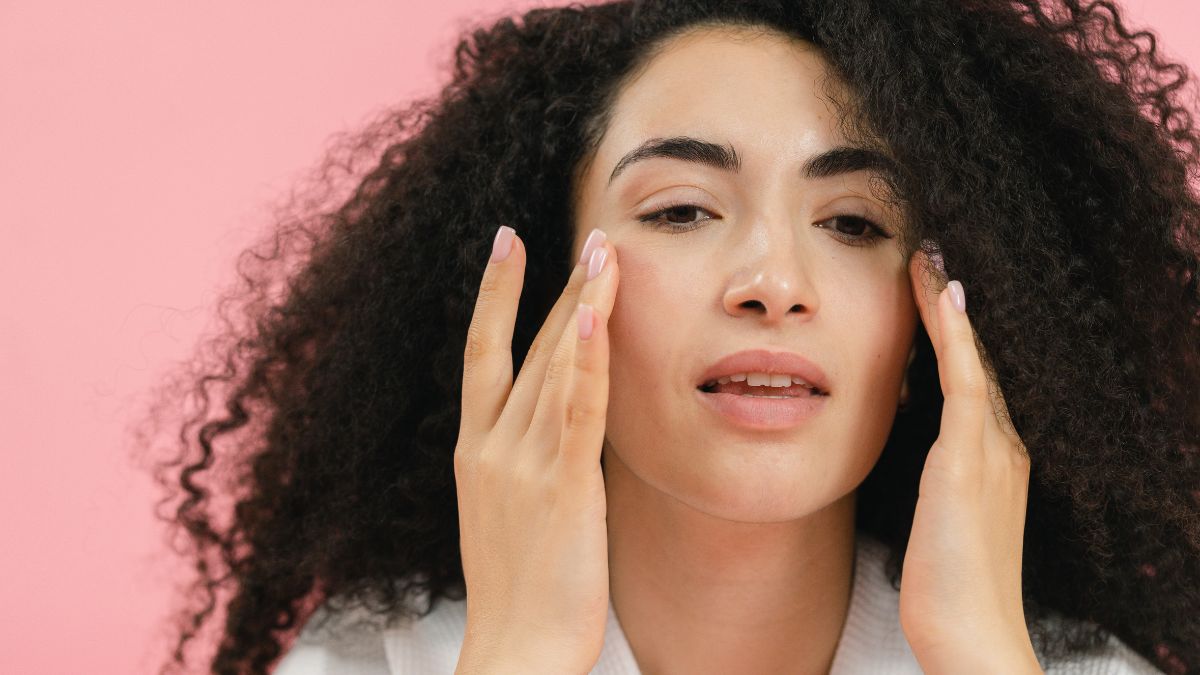Just In
- 21 min ago

- 1 hr ago

- 6 hrs ago

- 10 hrs ago

Don't Miss
- Technology
 Motorola Launches Moto Buds+ and Moto Buds With ANC; Check Price and Features
Motorola Launches Moto Buds+ and Moto Buds With ANC; Check Price and Features - News
 Explained: What Caused Heavy Rains & Storm In The UAE?
Explained: What Caused Heavy Rains & Storm In The UAE? - Movies
 Vanitha Film Awards 2024: Unveiling The Date, Time, Venue, And Exciting Winners Prediction List!
Vanitha Film Awards 2024: Unveiling The Date, Time, Venue, And Exciting Winners Prediction List! - Sports
 GT vs DC IPL 2024: Four Batters Who Can Score Most Runs in Match 32
GT vs DC IPL 2024: Four Batters Who Can Score Most Runs in Match 32 - Automobiles
 India's Automobile Market: Diesel Cars Maintain Their Ground Amidst Petrol Shift
India's Automobile Market: Diesel Cars Maintain Their Ground Amidst Petrol Shift - Finance
 Voda Idea Raises About Rs 5,400 Crore From Anchor Investors, Closes Anchor Book Allocation
Voda Idea Raises About Rs 5,400 Crore From Anchor Investors, Closes Anchor Book Allocation - Education
 UPSC Success Story: An IITian, A Government Job Holder at Railways, Quit the Job and Emerged as an IAS
UPSC Success Story: An IITian, A Government Job Holder at Railways, Quit the Job and Emerged as an IAS - Travel
 From Coconut Breaking on Head to Men Dressing as Women: 12 Unique Indian Rituals Explored
From Coconut Breaking on Head to Men Dressing as Women: 12 Unique Indian Rituals Explored
12 Reasons For Your Dry Skin Despite Using Moisturiser Regularly
Moisturiser should be your dry skin's bff. But how much ever you lather your skin with moisturiser, the dry, flaky skin doesn't seem to leave you - and you may be wondering the reason behind that. I mean, what are the reasons for your dry skin despite using moisturiser regularly, right?
Well, we are here to help you get some clarity on that matter.
Let's check out the reasons why your skin refuses to be hydrated, moisturised and unbothered!

Reasons For Your Dry Skin Despite Using Moisturiser Regularly
Even if you lubricate your body daily, but your extra layers of body cream do not seem to be satisfying your dry skin, you may need to investigate other causes.
1. Retinol and acne treatments
On-the-spot products often contain salicylic acid because it unclogs pores and reduces inflammation, which contributes to pigmentation. Its only downside is that it can dry out, which can cause flaking and irritation, so it is important not to overuse it. Retinol can also cause flaky red skin [1].
2. Too much hot water
If you're having a bath, add a few drops of oil to the water, or lower the temperature. If you're having a shower, keep it short (10 minutes). Use body soap only on the essential areas (such as the underarms and groin) and moisturise right afterwards.
3. Your room is too dry
A fan during ultra balmy temperatures can dry out your skin. Experts recommend placing bowls of water near radiators and windows. Or you can invest in a humidifier - this will release moisture and help your skin - especially in the bedroom [2].
4. You don't eat fruit
Adding more fresh fruits and vegetables will help keep our skin looking plump, hydrated, and healthy. Vitamin C is crucial to collagen production.
5. Using heavy moisturiser
Dry skin causes many of us to slather on the heaviest moisturiser we can find, but this does more harm than good. Greasy moisturisers can weaken the skin barrier function and alter the skin's natural ability to hydrate itself.
6. Misapplying hyaluronic acid serum
There is one thing about hyaluronic acid: if there is no moisture in the air, it won't work. Hyaluronic acid can actually dry out your skin if you apply it to dry skin in a room with high heat and low humidity. If the air isn't humid, hyaluronic acid will draw moisture from wherever it can find it, including the deeper layers of your skin [3].

7. Too little exfoliation
There's a delicate line between exfoliating too much and buffing enough in winter. The skin becomes very dry in the colder months, which leads to an accumulation of dead cells. They prevent hydrating serums and moisturisers from working.
8. You're dehydrated
It is recommended that we consume at least two to three liters of water per day in order to stay hydrated. This should be water, not tea, coffee, juice, or alcohol, which actually dehydrates the body, so we may need to drink more water.
9. Skipping SPF
You may not be aware that UV rays are also incredibly dehydrating, sapping moisture from already dry skin. For this reason, make your last layer of skincare a cream-based sunscreen with ingredients such as shea butter, glycerine and hyaluronic acid to replenish moisture [4].
10. Not enough sleep
The lack of sleep causes your pH levels to drop and your skin becomes incapable of producing the moisture it needs. It's imperative to get your eight hours a night to ensure a healthy lifestyle.
11. Overwashing without moisturising
With the pandemic, we've all naturally become accustomed to washing our hands and bodies more frequently, with many of us opting for harsher antibacterial products and hand sanitisers with high alcohol levels.
12. Using fragranced products
Skin can be irritated by fragrance, causing cracked, sore patches to appear. Allergenic contact dermatitis is often caused by synthetic fragrances, but essential oils can also trigger the reaction by imparting scent through a volatile reaction.

On A Final Note...
Dry skin can also be caused by psoriasis and eczema. Diabetes and lupus, seemingly unrelated conditions, can also affect blood circulation to the hands, limbs and other body extremities, resulting in dry, cracked, irritated skin. In these cases, consult a dermatologist.
-
 beautyTravelling To Manali, Himachal Or Any Cold Place? Here Are 3 Skincare Tips For People With Dry Skin
beautyTravelling To Manali, Himachal Or Any Cold Place? Here Are 3 Skincare Tips For People With Dry Skin -
 beauty3 Ways To Use Petroleum Jelly For Dry Skin
beauty3 Ways To Use Petroleum Jelly For Dry Skin -
 beautyOily Skin With Dry Patches: Embrace The Magic Of This Vegetable!
beautyOily Skin With Dry Patches: Embrace The Magic Of This Vegetable! -
 beautyIs Your Soap Drying Out Your Skin? Let's Find Out!
beautyIs Your Soap Drying Out Your Skin? Let's Find Out! -
 beautyGet Glowing Skin With Dry Brushing: 9 Reasons Why You Need To Try It Today!
beautyGet Glowing Skin With Dry Brushing: 9 Reasons Why You Need To Try It Today! -
 beautyHow To Choose A Facial Cleanser For Your Skin Type
beautyHow To Choose A Facial Cleanser For Your Skin Type -
 beautyTop 4 Ways To Get Rid Of Dry Skin Around Mouth
beautyTop 4 Ways To Get Rid Of Dry Skin Around Mouth -
 beautyFoot Packs To Get Rid Of Dry Foot Skin
beautyFoot Packs To Get Rid Of Dry Foot Skin -
 skin careHoli: Pre And Post Skincare Tips For Holi; Holi Skincare Tips For Men And Women
skin careHoli: Pre And Post Skincare Tips For Holi; Holi Skincare Tips For Men And Women -
 skin careFermented Skincare: What Is It? Can It Help With Sensitive Skin?
skin careFermented Skincare: What Is It? Can It Help With Sensitive Skin? -
 skin careWhat Is A Moisture Sandwich; How Can It Help With Dry Skin On Face And Lips?
skin careWhat Is A Moisture Sandwich; How Can It Help With Dry Skin On Face And Lips? -
 skin careSkincare Tips For Men With Dry Skin
skin careSkincare Tips For Men With Dry Skin


 Click it and Unblock the Notifications
Click it and Unblock the Notifications



